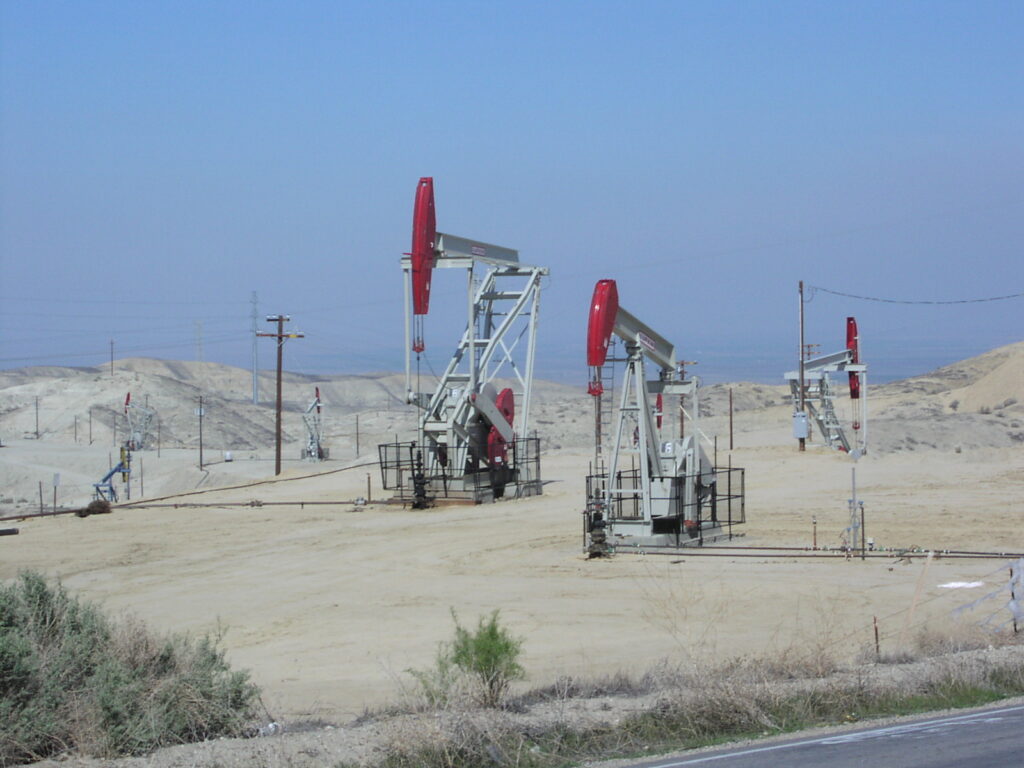
Communities close to oil and gas wells had more cases of and higher mortality rates due to COVID-19 in the first half of 2020, a new GeoHealth study finds. Credit: Wikimedia Commons/Antandrus
AGU News
AGU24 press registration
Press registration for AGU’s Annual Meeting is open! AGU24 will be held in Washington, D.C. from 9-13 December. Complimentary registration is available for journalists, journalism students, press officers, and institutional writers covering the meeting. [register here][eligibility][AGU24 press center]
Featured Research
Proximity to oil and gas wells tied to COVID-19 risk
Living near oil and gas drilling may affect immune system functioning, cardiovascular health and respiratory health. New research finds that communities close to oil and gas wells in California had higher case numbers and mortality rates during the early days of the COVID-19 pandemic. [GeoHealth study][Eos research spotlight][UC Berkeley press release]
Atmospheric pattern linked to autumnal western wildfires
Autumn wildfires have become more common in the western United States since 2000. New research finds that an atmospheric pattern called the West Pacific teleconnection has shifted eastward since the 1980s and could account for approximately one-third of the variation in autumn wildfires each year. [Earth’s Future study]
Tree rings record sparse snowpack
Groundwater records typically only go back to around 1960. A new study uses tree ring widths to identify periods of drought from 1850 to 2002 in the North American Cordillera, a series of mountain ranges that runs up the western half of the continent. The study found that groundwater droughts were mostly related to snowpack shortages. [Geophysical Research Letters study]
May 2024 geomagnetic storm was a successful test for Mexico’s space weather programs
Over the past 10 years, the Mexican Space Weather Service and National Space Weather Laboratory have been expanding and improving their instrumentation. The strong May 2024 geomagnetic storm was their first major test, and their instruments successfully collected a range of valuable low-latitude space weather data, as a new study outlines. [Space Weather study]
Most satellite observations of Africa are done by non-African organizations
African countries face high rates of food insecurity, and satellites are critical for collecting data on agriculture, water, and populations. However, 90% of such observation projects are led by non-African organizations, a new study finds. That creates inequity in data collection and use, the authors argue. [Perspectives of Earth and Space Scientists study]
###